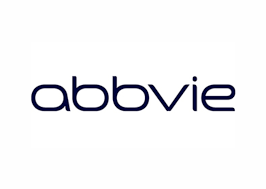Article
New Upadacitinib Data Positive for Crohn’s Disease
Author(s):
Significantly more patients treated with upadacitinib achieved clinical remission compared to patients treated with placebo.

New topline data shows upadacitinib 15 mg or 30 mg once daily resulted in endoscopic response and clinical remission in patients with moderate-to-severe Crohn’s disease who had an inadequate response or were intolerant to a conventional or biologic therapy.
The results, announced by AbbVie, come from the phase 3 maintenance U-ENDURE study evaluating the treatment in this patient population.
"We are deeply committed to supporting Crohn's disease patients who continue to live with challenging symptoms that impact their daily lives," said Thomas Hudson, MD, senior vice president, research and development, chief scientific officer, AbbVie, in a statement. "These results represent important progress as we work to bring new treatment options to patients with inflammatory bowel disease."
The U-ENDURE Study
A total of 673 patients in the maintenance study progressed from the U-EXCEED and U-EXCEL induction trials and responded to 12 weeks of upadacitinib 45 mg oral induction treatment. In U-ENDURE, the patients were re-randomized to receive 15 mg or 30 mg of upadacitinib or placebo.
The investigators defined clinical remission by the Crohn’s Disease Activity Index (CDAI) or by stool frequency and abdominal pain score (SF/AP).
Efficacy Results
There were a significantly higher proportion of patients treated with upadacitinib 15 mg (37%) or 30 mg (48%) who achieved clinical remission per the CDAI at week 52, compared to 15% in the placebo group (P <0.0001).
The team also found that 36% of patients in the upadacitinib 15 mg group and 46% of the 30 mg group achieved clinical remission at week 52 per SF/AP compared to 14% of the placebo group (P <0.0001).
In addition, 28% and 40% of patients in the 15 mg and 30 mg cohorts, respectively, achieved endoscopic response at week 52, compared to 7% of patients in the placebo group (P <0.0001) and 19% and 29% of patients who received 15 mg or 30 mg upadacitinib, respectively, achieved endoscopic remission, compared to 5% of patients in the placebo group (P <0.0001).
There was also a significantly higher proportion of patients in either upadacitinib group who achieved corticosteroid-free clinical remission per CDAI and per SF/AP compared to the placebo group at week 52 among patients taking corticosteroids at baseline.
"Symptomatic relief as well as healing of the intestinal mucosa in Crohn's disease are important long-term treatment targets which may be associated with slowing disease progression and better quality of life for patients," said Julian Panes, Emeritus Professor of Medicine and the Chief of the IBD Unit at Hospital Clínic de Barcelona and lead study investigator, in a statement. "These results are encouraging and would be particularly important for patients who have not found relief with other conventional or biologic treatment options."
Safety
For safety, the results for either dose were generally consistent with the safety profile found in previous phase 3 induction studies for patients with Crohn’s disease, as well as the known safety profile of upadacitinib.
There were no deaths in the study and no new safety risks identified.
The most common adverse events for the treatment groups were the exacerbation of Crohn’s disease, arthralgia, and pyrexia.
The serious adverse event and serious infection event rates per 100 patient years was 37.4 and 8.4 for the placebo group, 25.0 and 6.1 for the upadacitinib 15 mg group, and 21.0 and 7.8 for the upadacitinib 30 mg group. There were 2 events of malignancies in the upadacitinib 30 mg group and 1 event in the upadacitinib 15 mg group.
There were also 1 adjudicated hepatic vein thrombosis reported in the upadacitinib 30 mg group.




